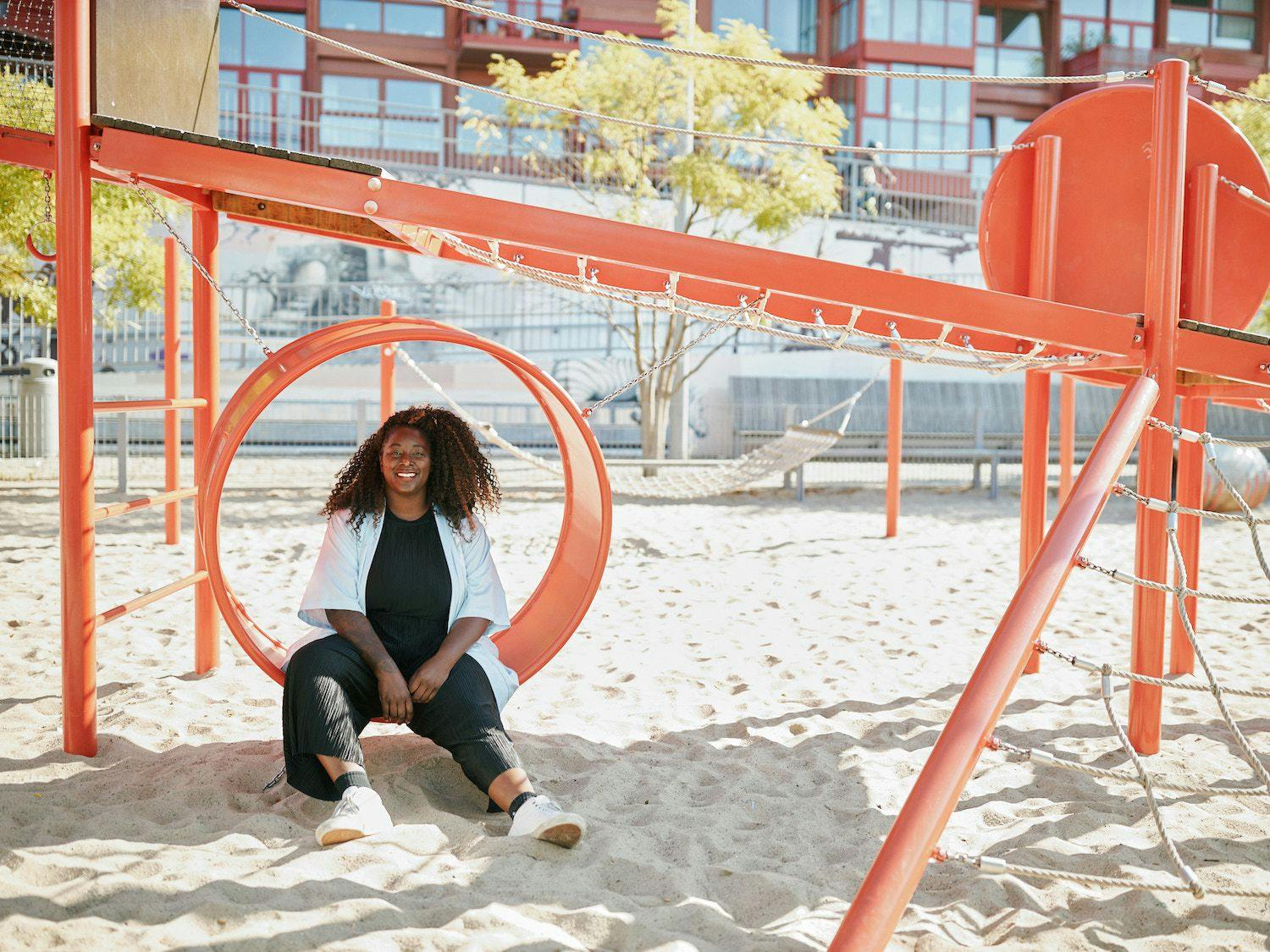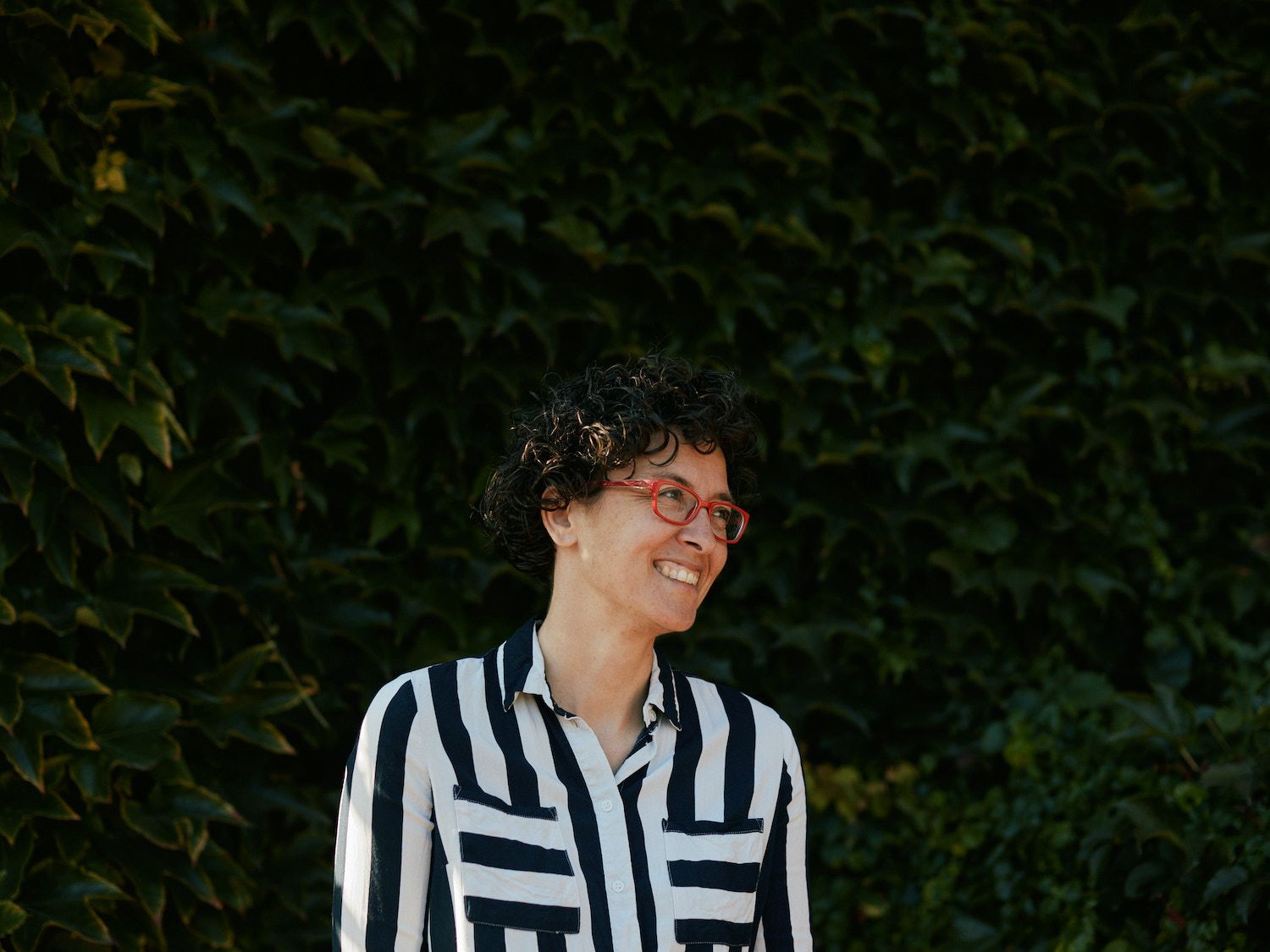
Becoming a parent is a big choice, and there shouldn’t be shame whatever we decide. So why do women who choose to be child-free so often face questioning, accusations, and stigma?
When my sister and I were children, we had different tastes in toys. She begged for baby dolls and prams, while I longed for stuffed animals. She wanted to play ‘mummies and daddies’, while I pranced around pretending to be a cat. Guess which one of us now has a child?
It wasn’t until I heard a similar story being told on the We Are Childfree podcast that I realised my lack of desire to have children was, potentially, always there. In my teens and 20s I was ambivalent, assuming I’d decide later, but when I turned 35 last year, I figured I should give it more serious thought (biological clock warnings ringing loud in my ears).
Discussing the subject with my partner throughout, it didn’t take too long for us both to come to the conclusion that having children is not for us. Being comfortable talking about the decision openly, however, took a little longer.
This was when I discovered the We Are Childfree podcast and community. Hosted by photographer Zoë Noble, the show shares stories of child-free people around the world, looking into the multifaceted reasons why some of us decide to be child-free, the stigma and misconceptions attached, and the need for changing attitudes towards this. Listening to the podcast, I felt a wave of relief. I wasn’t alone, and I wasn’t a ‘bad’ woman for not wanting kids.
Listening to the podcast, I felt a wave of relief. I wasn’t alone, and I wasn’t a ‘bad’ woman for not wanting kids.
“I know that, for me, I’ve always been like this,” Zoë says. “There’s no big conspiracy. I just don’t want children – to me it’s like asking, why do I like the colour blue? It’s simply who I am. So I knew that I could maybe change the way people view child-free women in particular, because it’s women who face this judgment and stigma more than men, for sure.”
We only need to look at the constant barrage of speculation and questioning actors like Jennifer Anniston get in contrast to their male counterparts to see how accurate this is.
The catalyst for wanting to share stories from fellow child-free women came during a taxi ride where the driver expressed his shock that Zoë was married, but didn’t want kids.
“For that whole drive he was determined to try to persuade me to change my mind, and I was just so frustrated with that process. I knew then that there was a disconnect between what people think child-free people are, and what we actually are.”
Looking to address this disconnect, Zoë started a photography project, photographing child-free women at her home studio in Berlin. When the pandemic hit, her approach needed to change and this is when the podcast came to life, allowing her to speak to people around the world without limitations.
Speaking with a diverse range of people from different countries and cultures was integral for the project, as Zoë notes a statistic from the United Nations Population Fund’s 2021 State of World Population report that says in countries where data is available, only 55% of women are fully empowered to make their own choices over healthcare, contraception, and the ability to say yes or no to sex.
As well as sharing these necessary stories, the podcast advocates for women’s rights: our right to bodily autonomy, and our right to choose. This is about highlighting the struggles so many face, and breaking down stigma, one conversation at a time.

One misconception I see regularly in regards to child-free women is that it’s a ‘selfish’ act, and that we aren’t ‘contributing’ to society.
“People who are thinking about themselves are not selfish,” Zoë says. “I would say we are the opposite of that. We are thinking about not only ourselves, but the life of a possible child.”
Zoë goes on to explain that there are multiple reasons someone may choose not to have a child, including prioritising their mental and physical health. One woman from the project decided not to have children after struggling with eating disorders for 10 years. Finally at a place where she was happy in recovery, she realised that having a child could un-do this progress and, for her, it simply isn’t worth her putting her body and mind through it.
“We don’t need to earn our keep on this planet. We don’t need to produce, produce, produce, to be somehow valuable to society,” Zoë reminds us.
We don’t need to earn our keep on this planet. We don’t need to produce, produce, produce, to be somehow valuable to society.
The reality is that we are valuable just as we are. And, in fact, due to our decision to be child-free, many of us have more time, energy, and financial means to volunteer, support communities and be there for others.
There are so many ways we can nurture and pass on our learning to others without having to have children of our own. As an auntie, I can already see how wonderful it is to have children in my life I can support, without compromising my own needs and desires. Zoë also points out that as well as supporting nieces and nephews, we can be in a great position to throw out a life-line for parents who may be struggling.
If you’re reading this and thinking, what if I just don’t know if I want kids? You’re not alone. Zoë notes that ambiguity is a big issue in the child-free community, and there’s nothing wrong with not knowing. What is important is to really check-in with your own wants and desires.
“I think a lot of people are actually getting confused about their own desires, because we don’t give people the tools to decide what they should want in their lives. We set them off on a path where you get the job, you get the partner, the house, the child, and then you retire, and that’s it. Instead, we need to empower people to really think about what matters to them, what is their personality? What do they love? What do they not love? Those are important questions that you need to ask yourself.”
Zoë also suggests, where possible, to try looking after children for an extended period of time (think a few days, not a few hours) to get a clearer idea of what parenthood could look like. The view of parenthood we see can sometimes be sterilised, as it sits in an environment where parents can feel judged for admitting they’re struggling. Promoting honesty in this realm would not only help those deciding if it’s right for them, but it would help parents know they’re not alone and they’re doing an incredible job.
Being a parent is hard work, and I have so much admiration for those who do it. I see the joy it brings my loved ones, and that is an incredible thing. Knowing it wouldn’t be the same for me, and admitting that… is also an incredible thing.
“There are no guarantees in life,” Zoë adds. “But one thing is for sure, if you can truly choose the life path that you want, you have a far better chance of being happy – that I am sure of.”
Header image: Portrait of Lis, photography Zoë Noble
Understanding your core values and what you truly want from life can be helpful if you are struggling with this decision. To speak with a life coach, visit Life Coach Directory.

